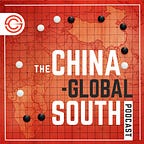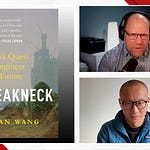South Africa this week joined a growing list of developing countries around the world that have introduced tariffs on certain Chinese imports to protect local producers. Indonesia, Mexico, Chile, and Brazil, among others, have also introduced similar duties on Chinese steel and other products.
While low-cost Chinese goods are a boon for Global South consumers, they're extremely problematic for manufacturers in these countries because it's almost impossible to match the "China Price."
Chinese factories can produce goods at a scale and cost that remains unrivaled, and now, according to a new report by the consultancy Rhodium Group, they're flooding markets in Africa and other developing regions.
Camille Boullenois, a director of Rhodium Group's China projects team, and Austin Jordan, a senior analyst a Rhodium Group, join Eric & Cobus to discuss their new report and why this trend is potentially debilitating for many of the world's least developed countries.
JOIN THE DISCUSSION:
X: @ChinaGSProject | @christiangeraud | @stadenesque
Facebook: www.facebook.com/ChinaAfricaProject
YouTube: www.youtube.com/@ChinaGlobalSouth
FOLLOW CAP IN FRENCH AND ARABIC:
Français: www.projetafriquechine.com | @AfrikChine
Arabic: عربي: www.alsin-alsharqalawsat.com | @SinSharqAwsat
JOIN US ON PATREON!
Become a CAP Patreon member and get all sorts of cool stuff, including our Week in Review report, an invitation to join monthly Zoom calls with Eric & Cobus, and even an awesome new CAP Podcast mug! www.patreon.com/chinaglobalsouth













